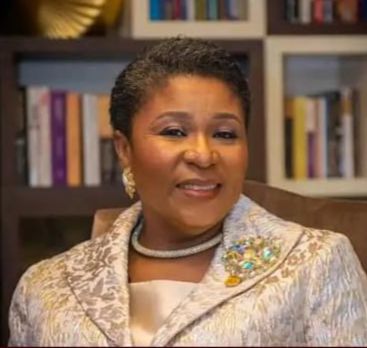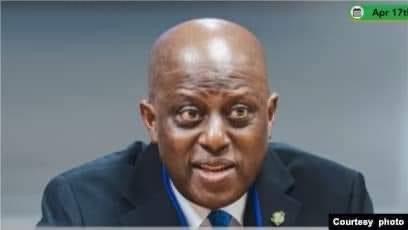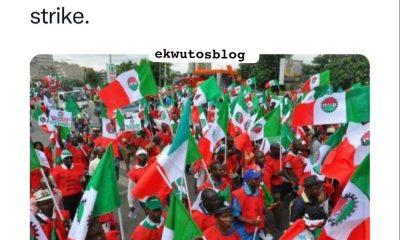By Chris UGWU, Kasarahchi ANIAGOLU Nov 27 2024
Some financial experts have said that the CBN’s 25 basis points rate hike signals a potential pause in interest rate increases starting next year, emphasizing the need for relief for small businesses facing high financing costs.
The Central Bank of Nigeria (CBN) had raised its interest rate by 25 basis points, increasing it from 27.25 per cent to 27.50 per cent, in response to the country’s rising inflation.
This decision was announced by CBN Governor Mr. Yemi Cardoso, who also chairs the Monetary Policy Committee (MPC), following their meeting in Abuja.
The MPC unanimously agreed to the hike as part of ongoing efforts to address inflationary pressures in the economy.
The analysts in an exclusive interview with THE WHISTLER noted that despite the CBN’s tightening measures, inflation remains high, with benefits mainly seen in exchange rate stability due to foreign portfolio inflows.
They agreed that the rate hike was expected due to rising inflation, warning that it will increase business financing costs, which could be passed to consumers and further strain household budgets.
Reacting to the development, Nigeria’s first Professor of Capital Market, Uche Uwaleke indicated that the move might signal an imminent pause in the CBN’s aggressive monetary tightening cycle.
Uwaleke noted that the marginal increase aligns with analysts’ expectations, suggesting a potential shift in the CBN’s strategy.
“The marginal rate increase is a signal that the CBN may completely pause or apply the brake on interest rate hikes starting from the first quarter of next year,” he explained.
The professor emphasized the necessity of a pause, citing the rising cost of funds and its adverse impact on credit access, particularly for small businesses. “This needs to happen so that small businesses can breathe,” he remarked.
Despite the CBN’s sustained tightening measures, headline inflation remains stubbornly high, reversing recent gains and rising further.
Uwaleke observed that the benefits of the rate hikes have been most apparent in the foreign exchange market, where increased foreign portfolio inflows have contributed to exchange rate stability in the official window.
However, the broader economic picture remains concerning. The Q3 2024 GDP report released by the National Bureau of Statistics (NBS) showed weak performance in the agriculture and manufacturing sectors, a development Uwaleke attributed to rising interest and exchange rates.
He stressed the need for coordinated efforts between monetary and fiscal authorities to navigate the country’s macroeconomic challenges effectively.
“The current macro-economic challenges make it imperative for a proper synergy between monetary and fiscal policies,” he advised.
Managing Director of Arthur Steven Asset Management Limited and former President of the Chartered Institute of Stockbrokers (CIS), Mr. Olatunde Amolegbe also shared his views on the Central Bank of Nigeria’s (CBN) decision to raise the Monetary Policy Rate (MPR) by 25 basis points, moving it from 27.25 per cent to 27.50 per cent.
Amolegbe noted that the rate hike was widely anticipated, particularly given the National Bureau of Statistics (NBS) report showing inflation had increased by over 100 basis points in the previous month.
“The truth is that this was somewhat expected,” Amolegbe stated, acknowledging that many analysts had predicted this adjustment, with some even anticipating a higher increase due to ongoing price instability across various sectors of the economy.
He further pointed out that the government’s fiscal and structural measures, aimed at curbing inflation, have yet to yield immediate results.
“These measures typically take time to have the desired impact,” he said, adding that as a result, monetary policy has remained the primary tool available to the CBN in its efforts to stabilize the economy.
“This leaves us with monetary policy as the only effective tool to prevent the economy from spiraling out of control,” he explained.
However, Amolegbe also warned of the potential negative consequences of the rate hike on businesses and consumers.
“The likely impact of this move will be a further increase in financing costs for businesses,” he stated.
These higher costs are expected to be passed on to consumers, potentially raising prices on goods and services and putting additional strain on household budgets.
Amolegbe concluded by emphasizing the delicate balance the CBN faces in managing inflation and ensuring that the economy does not overheat, while acknowledging the challenges that persist in the broader economic landscape.
Managing Director of Highcap Securities Limited, Mr. David Adonri also weighed in on the Central Bank of Nigeria’s continued use of interest rate hikes as a tool to manage inflation, noting that while effective in the short term, it remains insufficient in addressing the underlying economic issues.
In an exclusive interview, Adonri explained that interest rate adjustments are a critical component of monetary policy designed to curb inflation until more sustainable fiscal measures can be implemented to address the structural causes of economic imbalance.
“Interest rates are a potent tool for managing inflation in the short term,” Adonri stated.
“However, their effectiveness is often limited when coupled with expansionary fiscal policies,” he added.
He further emphasized that the ongoing fiscal expansion, alongside factors such as insecurity and currency depreciation, continues to fuel inflation.
These persistent challenges leave the CBN’s Monetary Policy Committee (MPC) with few options but to maintain its contractionary monetary stance.
“As long as fiscal policies remain expansionary and the factors driving inflation persist, the MPC will have no choice but to continue raising interest rates,” he explained.
Adonri also cautioned that allowing inflation to spiral out of control would have devastating consequences for both consumers and producers. “The impact of unchecked inflation would be far more harmful than the effects of higher interest rates,” he warned, underlining the importance of the MPC’s approach in preventing further economic instability.
Despite the negative effects on certain sectors of the economy, Adonri acknowledged that the interest rate hikes provide a silver lining for investors in debt instruments.
“The bonanza for investors in debt assets will continue as the rates rise,” he noted, as higher interest rates typically make fixed-income investments more attractive.
In conclusion, while the CBN’s monetary policy actions are necessary to address the current inflationary pressures, Adonri stressed the need for a coordinated effort between monetary and fiscal policies to tackle the structural issues contributing to inflation and ensure sustainable economic growth in the long term.
Meanwhile, Cardoso called for critical synergy between the monetary and fiscal sectors of the economy to achieve price stability and curtail inflationary pressures on food and other commodities.
According to Cardoso, food prices remain a key driver of inflation, compounded by rising energy costs that affect production factors.
“The recent increase in the price of Premium Motor Spirit (PMS) has also impacted the cost of production and distribution of food items and manufactured goods.
“The Committee was optimistic that the full deregulation of the downstream sub-sector of the petroleum industry would eliminate scarcity and stabilize price levels in the short to medium term.
“Members, thus, reiterated the need to deepen collaboration between the monetary and fiscal authorities to ensure the achievement of our synchronized objectives of price stability and sustainable growth.”
Cardoso highlighted members’ concerns over persistent exchange rate pressures, driven by continued high demand in the market.
Cardoso expressed satisfaction with the resilience and stability of the banking sector despite significant external and internal challenges.
He outlined key financial soundness indicators, stating that the “Capital Adequacy Ratio (CAR), Non-Performing Loan (NPL) ratio, and Liquidity Ratio (LR), among others, remain strong.”




 Politics9 months ago
Politics9 months ago
 Business10 months ago
Business10 months ago
 Politics6 months ago
Politics6 months ago
 SportsNews9 months ago
SportsNews9 months ago
 Politics9 months ago
Politics9 months ago
 Entertainment9 months ago
Entertainment9 months ago
 Politics6 months ago
Politics6 months ago
 Business9 months ago
Business9 months ago




